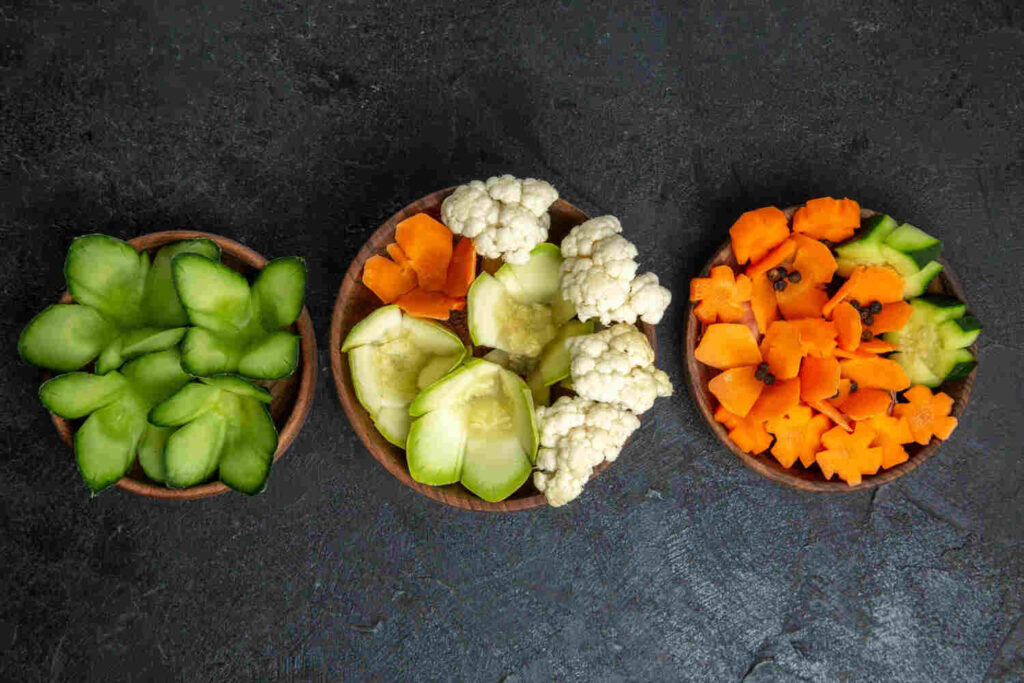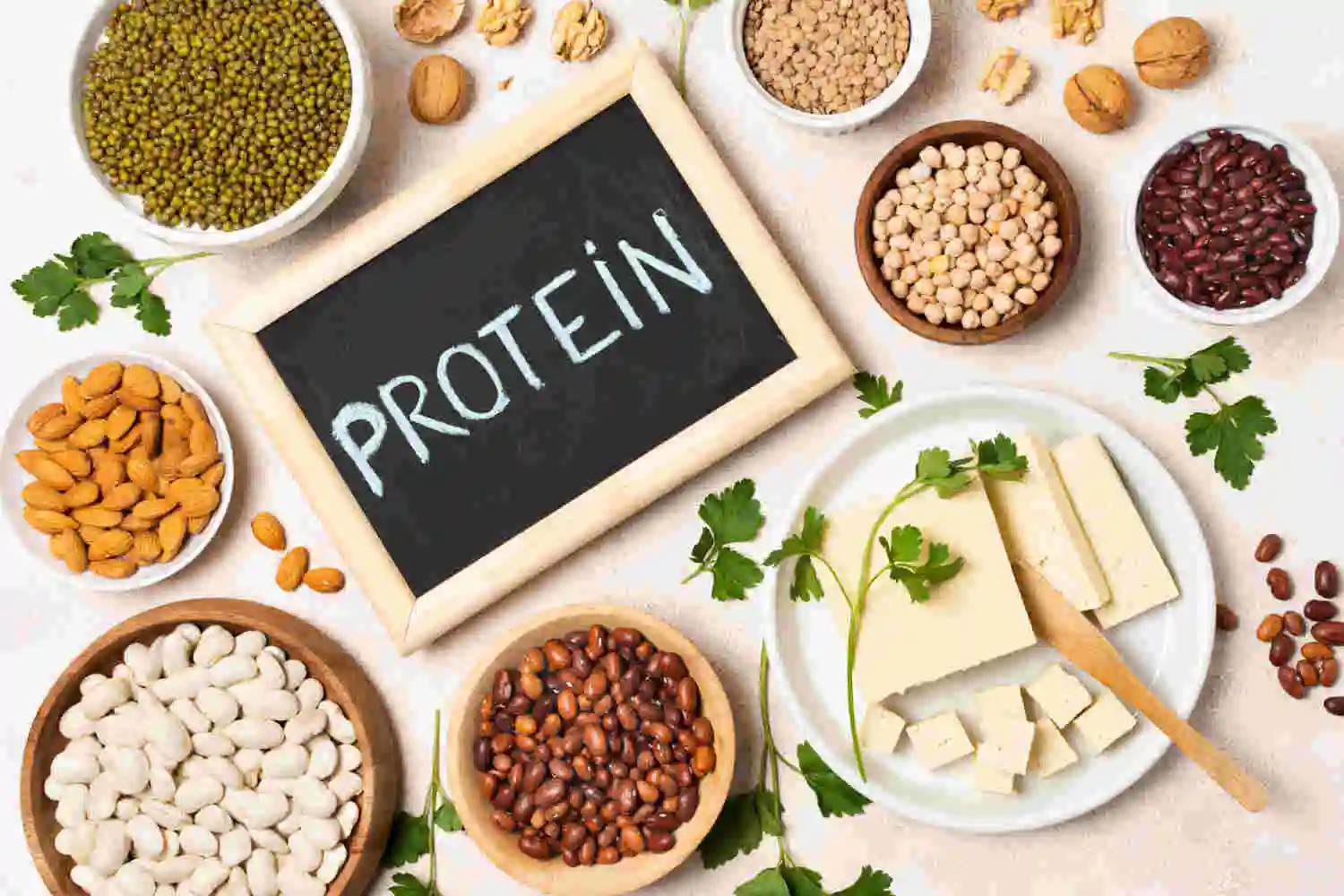Overview of the Importance of Protein in a Balanced Diet
Before we describe the common search term of fitness lover “high protein low calorie meal prep”, let’s discuss about why protein is an important factor in our diets. Think of protein as your diet’s VIP – it’s super important for keeping us healthy and well-balanced. Our bodies really need protein to function well and carry out all sorts of internal activities. Let’s break down why protein is such a star player.
Table of Contents
ToggleMuscle Maintenance and Muscle Building

Cellular Building and Function
Proteins are vital for the structure and functionality of muscle cells. Considering them the creators of enzymes, cell membranes, and other essential parts. They essentially ensure that everything goes without a hitch! A sufficient protein intake ensures the proper functioning of cells, contributing to overall health.
Protein in Hormone Regulation
Protein plays a vital role in controlling hormones, which are like important to manage a many of body processes, such as metabolism boosting, release more growth hormones (GH), and mood regulation from cortisol hormones and simulate thyroid stimulating hormone (TSH).
Immune System Support

Consider proteins to be your immune system’s superheroes. Proteins are the fundamental elements of things like immunoglobulins which operate as the body’s defence against diseases. Including a sufficient amount of protein in your diet is like providing your body with the armor your immune system needs to fend against infections and diseases. In other words, protein is your body’s hidden weapon for fighting disease and maintaining health!
Enzyme Function
Enzymes are proteins that facilitate biochemical reactions in the body. These reactions are crucial for digestion, nutrient absorption, and energy production. Adequate protein intake supports the proper functioning of enzymes, promoting efficient metabolic processes.
Weight Management
Tissue Repair and Wound Healing
Protein is essential for tissue repair and wound healing. Whether recovering from an injury, surgery, or everyday wear and tear, a sufficient protein supply aids in the regeneration of tissues and the healing process.
Maintaining Healthy Hair, Skin, and Nails

Some amino acids of proteins are very important to the building of microcells of hair, skin, and nails. Including enough protein in the diet supports the health and appearance of these external features, contributing to an overall sense of well-being.
in summary, it’s important that your diet is balanced and that you are getting enough daily required protein. It guarantees that everything in your body performs as it should, supports your muscles, and aids in maintaining general health. Protein is very essential for hormones and immunity, it’s a basic need no matter age or level of activity.
High Protein Low Calorie Meal Prep idea
Tips for effective high protein low calorie meal planning.
Planning a meal with lots of protein and fewer calories needs careful thought and smart choices. Check out these tips to guide you in creating a meal plan that’s both effective and low-calorie:
Identify and Calculate Your Protein Needs

Whenever you search for high protein meals prep, you need to calculate your daily protein requirements which based on factors such as age, weight, activity level, and health goals. This will guide you in setting a target for your protein intake.
Choose Lean Protein Sources
Opt for lean protein sources, consuming lean protein minimize your calorie intake while maximizing protein content. Some of the lean protein source include skinless poultry, fat free red meat, high protein fish, tofu paneer, tempeh, legumes and eggs white.
Incorporate Plant-Based Proteins
people are turning in vegan modern era so they always preferred plant-based protein options such pluses, soy products, beans, lentils and more. These options are often lower in calories and high in fibre, providing additional health benefits.
Prioritize Whole Foods
Focus on whole, nutrient-dense foods that provide essential vitamins and minerals along with protein. Avoid overly processed and calorie-dense items.
Emphasize Vegetables

Vegetables are very low-calories and have high micronutrients value. Incorporate a variety of colorful vegetables into your meals to add volume, fiber, and essential vitamins without significantly increasing calorie intake.
Control Portion Sizes
Be mindful of portion sizes to manage overall calorie intake. Use smaller plates, bowls, and containers to help control portions and prevent overeating.
Plan Balanced Meals
Aim for a balance of protein, healthy fats, and complex carbohydrates in each meal. This combination helps keep you satisfied, stabilizes blood sugar levels, and provides sustained energy.
Include Snacks
Plan protein-rich snacks to curb hunger between meals. Examples include Greek yogurt, a handful of nuts, or a protein smoothie with low-calorie ingredients.
Meal Prep in Advance
Set aside time for meal prepping to ensure that you have high-protein, low-calorie options readily available. Prepare proteins, vegetables, and other components in bulk for easy assembly throughout the week.
Stay Hydrated

Water! Drinking Penty of water is one of the most important things which you have to consider throughout the day. Sometimes, our bodies can confuse thirst with hunger, leading to unnecessary calorie consumption. Staying hydrated day long can help you decide better food for your body.
Limit Added Sugars and Empty Calories
Minimize the intake of sugary snacks, desserts, and empty-calorie foods. Instead, choose nutrient-dense options that contribute to your protein goals without unnecessary added sugars and fats.
Consult with a Nutritionist
List of High Protein and Low Calorie Food Items
Here is list of high-protein and low-calorie food items along with their nutritional value per 100 grams.
| Food Item | Protein (grams) | Calories |
|---|---|---|
| Chicken Breast | 31 | 140 |
| Turkey Breast | 31 | 140 |
| Pork Loin | 23 | 130 |
| Salmon | 23 | 200 |
| Tuna | 32 | 140 |
| White Fish | 25 | <120 |
| Shrimp | 24 | 120 |
| Eggs | 7 | 70 |
| Greek Yogurt | 11 | 70 |
| Cottage Cheese | 11 | 138 |
| Edamame | 18 | 188 |
| Tofu | 8 | 76 |
| Lentils | 9 | 116 |
| Tempeh | 19 | 193 |
Conclusion
In the search of a high-protein low-calorie meal plan, we’ve explained the importance of protein and high protein meal prep ideas. Crafting meals that strike a balance between protein, healthy fats, and complex carbohydrates ensures sustained energy, satiety, and optimal nutrition. The journey towards a high-protein, low-calorie lifestyle should not feel like a sacrifice.
Encouraging readers to personalize their meal plans, exploring the flavors that resonate with them, and finding joy in the process ensures a sustainable and enjoyable journey. Explore, experiment, and find the combination of foods that nourishes both your body and your taste buds. By embracing this personalized approach, you not only make healthier choices but also turn each meal into a celebration of well-being. Here’s to your health and the exciting culinary journey ahead!

